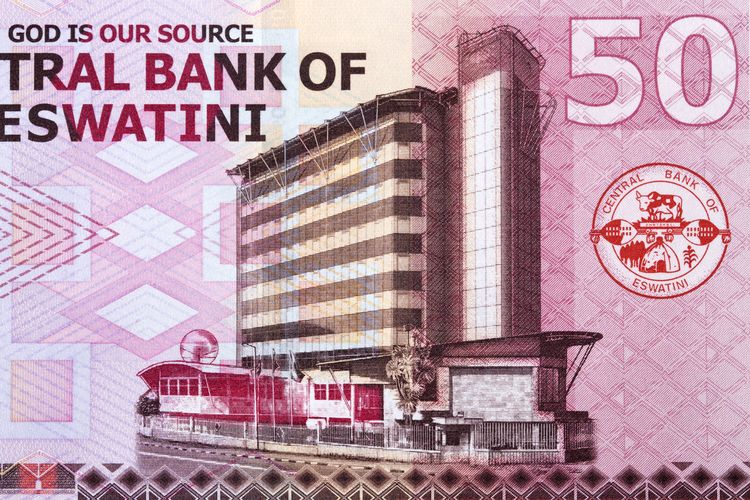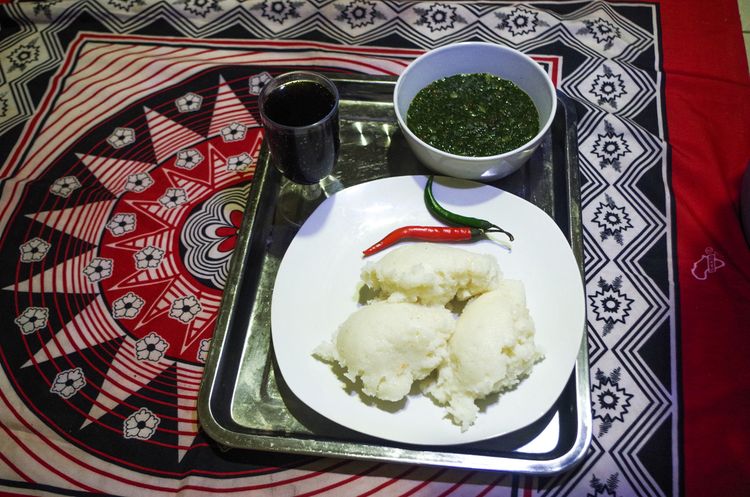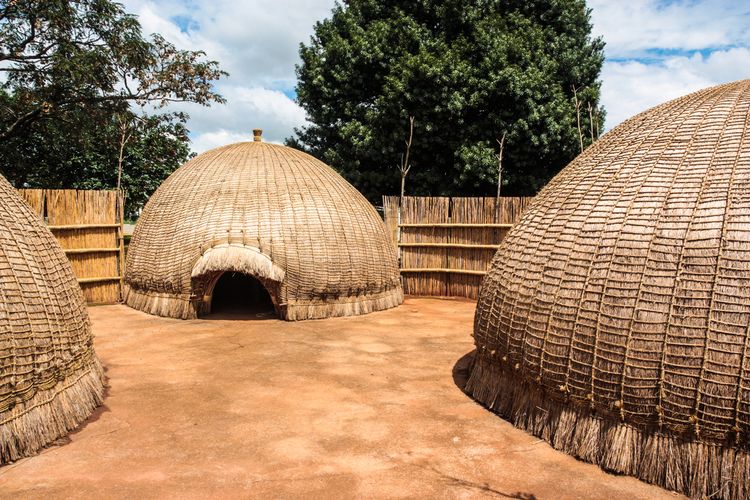Eswatini (Swaziland) Travel Tips and Information
Official Name
Kingdom of Eswatini
Capital
Mbabane
Population
Country Code
Approximately 1.25 million
SZ
Country Code (international calls)
+268
The flight time to Eswatini (Swaziland) is approximately ---- hours. Check the climate, currency, religion, manners, other information of Eswatini (Swaziland) below. Wishing you pleasant travels to Eswatini (Swaziland).
Eswatini is a landlocked country located in the southern part of the African continent. It is bordered by Mozambique to the east and South Africa on all other sides.
Local Climate / Weather
Eswatini experiences a subtropical climate with a blend of seasons that offer distinct experiences for travelers. The country’s climate is heavily influenced by its varied terrain, with cooler highlands in the west and warmer, low-lying regions in the east. Summer, from November to March, is generally warm and wet, with average daytime temperatures ranging from 20°C to 30°C (68°F to 86°F) and occasional heavy rains. This is the best season to experience the lush, green landscapes, but travelers should be prepared for sudden rain showers. Winter, from June to August, is cooler and dry, with temperatures averaging between 10°C and 20°C (50°F to 68°F). Nights can be chilly in the higher regions, while the eastern plains stay relatively mild. This season is popular for wildlife enthusiasts, as the sparse vegetation and dry weather make it easier to spot animals in Eswatini's renowned nature reserves. When planning a trip to Eswatini, consider seasonal events that showcase the country’s vibrant culture. The Incwala Festival, celebrated between December and January, is a sacred ritual honoring the king and the country’s cultural heritage. Travelers visiting during this time can witness a series of traditional ceremonies and dances, though it is advised to check local customs for visitor participation. In August, the Reed Dance, or Umhlanga, is one of Eswatini’s most famous festivals, where thousands of young women perform in honor of the queen mother. This colorful celebration offers a unique glimpse into Eswatini's rich traditions. The Marula Festival, held in February and March, is also a highlight, celebrating the harvest of the marula fruit with traditional brews and music. Each of these events provides an unforgettable cultural experience, enhancing any visit to Eswatini during these months.
Currency & Tipping
Currency
Eswatini’s official currency is the Swazi lilangeni (SZL), though the South African rand (ZAR) is also widely accepted and has the same value. The lilangeni comes in both banknotes and coins, with common banknotes in denominations of 10, 20, 50, 100, and 200 emalangeni. Coins range from 1, 2, and 5 emalangeni, as well as smaller denominations in cents. Most businesses in Eswatini accept either currency, making transactions relatively easy for travelers carrying either lilangeni or rand. It’s advisable to do so at official exchange bureaus or banks, particularly in major cities like Mbabane and Manzini, as they often offer better rates and secure transactions. While credit cards are accepted in urban areas, rural regions may have limited access to ATMs or card facilities, so it’s helpful to carry cash for smaller purchases and services.
Tipping
Tipping in Eswatini is generally appreciated but not strictly expected, and it can vary depending on the service provided. In restaurants, it’s customary to leave around 10% to 15% of the bill as a tip if service is not already included. Hotel staff and tour guides are typically tipped based on the quality of service, with a small amount being a nice gesture. Tipping taxi drivers is not common, though rounding up the fare as a token of appreciation is welcome. This relaxed approach to tipping makes it easy for travelers to show appreciation without added pressure.
Useful Travel Information

Voltage & Electrical Outlets
Eswatini uses a voltage of 230V and a frequency of 50Hz, with Type M plugs being the standard. Bringing a universal adapter and a voltage converter can ensure that electronic devices and chargers will work safely and efficiently.

Internet Connectivity
The internet environment in Eswatini varies by location. While major cities and tourist areas usually offer reliable internet access, connectivity may be limited in rural regions. Wi-Fi is available in most hotels, cafes, and restaurants in urban areas, though speeds can vary. Travelers needing consistent internet for work or communication may consider purchasing a local SIM card with a data plan, which is available at reasonable rates.
Water for Consumption (Drinking Water)
It’s recommended for travelers to stick to bottled water in Eswatini, especially in rural areas, as local tap water may not always meet international safety standards. Bottled water is widely available, and using it for drinking and brushing teeth is a safe choice. If visiting more remote areas, carrying a water purification method, such as tablets or a portable filter, is also advisable.
Culture, Religion & Social Etiquette
Culture
Eswatini is a country with a rich cultural heritage that is deeply rooted in its traditions and royal customs. The Swazi people celebrate their heritage through annual ceremonies such as the Incwala and the Umhlanga (Reed Dance), which are important cultural events that honor the monarchy and preserve traditional practices. These festivals are vibrant displays of dance, music, and attire, offering visitors a chance to witness Eswatini’s distinct cultural identity. Travelers will find Eswatini’s commitment to its cultural roots both fascinating and welcoming, as locals often invite tourists to experience and respect their traditions.
Religion
Christianity is the predominant religion in Eswatini, with a significant portion of the population identifying as Christian, primarily following Protestant, Anglican, and Catholic denominations. There are also influences from traditional Swazi beliefs, which emphasize the importance of ancestors and spiritual connection to nature. Travelers, many of whom are Christian, may feel at ease in Eswatini, as religious practices and values are respected. Additionally, traditional beliefs add a unique layer to the country’s spiritual life, providing an insightful look at Eswatini’s blend of faith and culture.
Social Etiquette
Eswatini is known for its warm hospitality and strong sense of respect, particularly toward elders and the monarchy. In Swazi culture, greetings are important, and it is customary to shake hands while making eye contact and smiling, as a sign of respect and friendliness. Eswatini is generally conservative, so modest dress is advisable, especially when visiting rural areas or cultural events. Respect for the monarchy is paramount, and travelers should avoid any behavior that could be perceived as disrespectful during royal ceremonies or when discussing the royal family.
Food Culture
Eswatini’s food culture offers a flavorful blend of traditional Swazi dishes and Southern African influences that will intrigue travelers. The cuisine often features staples like maize, sorghum, and fresh vegetables, with popular dishes including “sishwala” (a thick porridge) and “emasi” (sour milk) served with meat or vegetables. Street food in Eswatini provides an affordable and tasty way to experience local flavors, with vendors offering grilled meats, corn on the cob, and fried snacks. For those looking to dine at local restaurants, establishments in cities like Mbabane and Manzini showcase Swazi dishes alongside African-inspired fusion menus, providing an authentic and memorable taste of Eswatini.
Major Tourist Attractions & UNESCO World Heritage Sites
Major Tourist Attractions
Eswatini is a treasure trove of scenic landscapes and vibrant cultural sites that appeal to adventurous travelers. Mlilwane Wildlife Sanctuary, located in the Ezulwini Valley, is a must-visit destination for its beautiful walking trails, where visitors can spot zebras, antelopes, and a variety of bird species in a serene environment. For those interested in stunning vistas, the Malolotja Nature Reserve offers breathtaking mountain views and waterfalls, with zip-lining and hiking as popular activities. Another top destination is the lively capital city, Mbabane, where markets, crafts, and local eateries provide a window into daily Swazi life. Whether exploring nature or immersing oneself in city life, Eswatini offers unique and enriching experiences.
UNESCO World Heritage Sites
Eswatini is home to significant cultural and historical sites, some of which are on UNESCO’s tentative list for World Heritage status, making them fascinating destinations for tourists. The Ngwenya Mines, considered one of the oldest mines in the world, showcase ancient iron ore mining techniques dating back over 40,000 years, offering history enthusiasts a glimpse into early human ingenuity. Another culturally significant site is the Lubombo Conservancy, an expansive area rich in biodiversity and historical sites, where visitors can enjoy game drives and see ancient rock art. These heritage locations give travelers a deeper understanding of Eswatini’s rich past and cultural heritage while adding depth to any travel itinerary.
Travel FAQs
What is the safety situation in Eswatini like? What should travelers be careful of?
Eswatini is generally safe for travelers, but travelers should exercise caution due to occasional petty crimes like pickpocketing and sporadic civil unrest. It's advisable to avoid demonstrations, stay vigilant in crowded areas, and refrain from traveling alone at night.
Is English spoken in Eswatini?
English is widely spoken in Eswatini as one of the official languages. Locals primarily speak siSwati and English, so travelers will generally be able to communicate in English.
What is the best season to visit Eswatini?
The best season to visit Eswatini is from October to March when you can enjoy the perfect climate.
What is the most popular airport to fly to Eswatini?
Although it is a little far from the capital, King Mswati III International Airport is popular.
How much tip is required when staying in Eswatini for multiple nights at a hotel?
It’s customary to tip around 10 to 15 percent of the total bill if service charges are not included, or to leave a small daily tip (around 20-50 SZL) for housekeeping staff as a gesture of appreciation.




